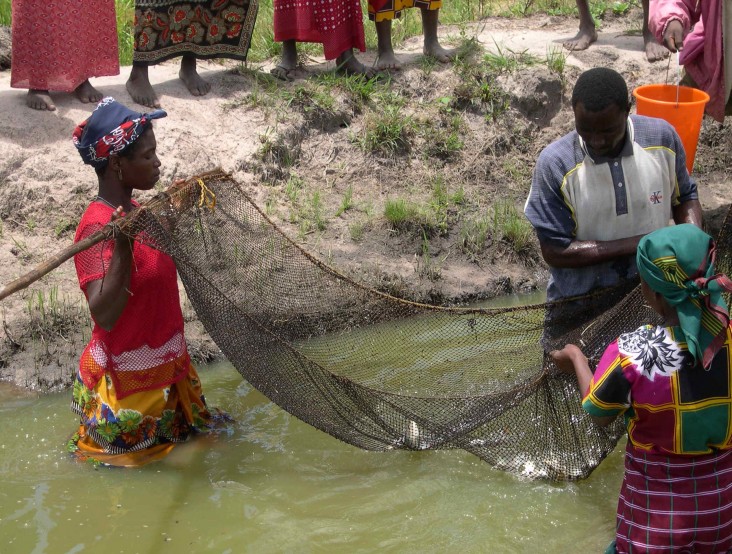
Agriculture continues to be the mainstay of Mozambique’s economy, contributing more than a quarter of its GDP and employing 80 percent of its labor force. The overwhelming majority of producers are subsistence farmers. Chronic food insecurity is exacerbated by climate shocks and natural disasters such as floods, droughts and cyclones.
The country has vast potential to eventually become a major food producer in Southern Africa. Only 16 percent of land suitable for farming is currently cultivated, and its geographic location between landlocked countries to ocean ports raises its potential to play a role in regional food security and international markets. Improving agricultural productivity and ensuring access to food are now top priorities for the country's leaders.
Through Feed the Future, USAID helps thousands of vulnerable households improve their food security by adopting more productive agriculture technologies, improving nutrition and health, and connecting farmers to markets. The country is the second-largest, formal exporter of food in the southern Africa region and could progress toward a trade surplus if regulation and agricultural practices improve. Its strategic location and trade corridors make the country a key player in regional and global food security.
To achieve the most impact, we focus agriculture and nutrition efforts in Zambezia and Nampula provinces based on need, potential for impact, and opportunities to leverage other public and private investments. These provinces also contain or are adjacent to the country’s three main trade corridors. Together, the provinces are home to 44 percent of the country’s poor, 43 percent of stunted children under 5 years of age, and 51 percent of underweight children under 5 years of age (370,000). Investments will focus on oilseed, cashew and fruit value chains, due to the income and nutritional benefits they offer.
Featured Articles
A Brighter Future in Mozambique From Seed to Harvest
Improved seed means bigger crop yields. The challenge lies in getting the seed, in smallholder package sizes, to farmers in remote areas.
In Mozambique, Food is for Peace and Much More
What began as food distribution in response to a crisis is today supporting a wide array of development goals. With the needs changing on the ground, the historic Food for Peace program has proven to be an extremely versatile development tool in rural Mozambique.
Eleven women scientists in Mozambique were selected from among hundreds of applicants from 10 sub-Saharan countries as fellows of the African Women in Agricultural Research and Development project. Funded by the Bill & Melinda Gates Foundation and USAID, the project strengthens scientists' research and leadership skills to build up the talent pool of highly skilled African women in agricultural research and development.








Comment
Make a general inquiry or suggest an improvement.